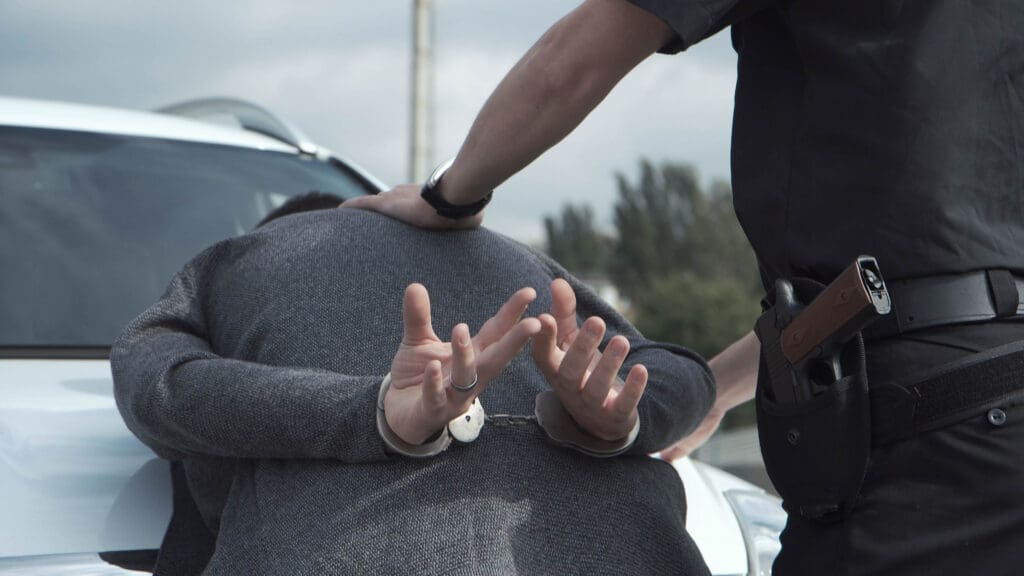Are alternatives to blood draw tests available after you’re stopped for an OWI?
After being stopped for suspected drunk driving, police frequently request that the driver submit to a test of his blood, breath, or urine for purposes of determining the driver’s level of intoxication. Frequently those tests are either blowing into an intoxilyzer machine or submitting to a blood draw. Because not everyone is comfortable submitting to a blood draw, you might be wondering whether you can request an alternative to the blood draw.
A recent decision from the Wisconsin Court of Appeals makes this answer clear: police need not offer a less-intrusive test under Wisconsin’s implied consent laws. But if you’re charged with operating while intoxicated this certainly isn’t the end of the line for you.
If police stop you and arrest you for drunk driving, there may still be issues to contest in your case. At Van Severen Law Office we believe that hiring a drunk driving defense attorney when facing these situations is incredibly important. Your freedom, your ability to drive, and your finances are all potentially at stake. Contact us immediately and we’ll begin planning how to defend your drunk driving case. In the meantime, here’s an explanation of the circumstances surrounding this situation.
What is implied consent?
Implied consent laws state that drivers, by operating their vehicles on public roadways, imply their consent to a chemical test of their blood, breath, or urine upon a request by law enforcement. Implied consent laws apply to all drivers in Wisconsin, not simply those who possess a Wisconsin driver license. For example, if you possess an Illinois driver license and operate a vehicle in Wisconsin, you’re also subject to implied consent requirements.
Does implied consent apply to all breath tests? Upon a stop for suspected OWI you will face two potential breath tests: the portable breath test (PBT) and the breath test back at the police station. Law enforcement officers administer the portable breath test in order to determine probable cause for a drunk driving arrest. After arrest, police conduct an evidentiary breath test at the police station using an intoxilyzer device. Prosecutors use the evidentiary breath test when issuing charges for operating while intoxicated. Importantly, implied consent laws only require the suspect to submit to evidentiary test. Implied consent laws do not apply to portable breath tests and drivers can legally refuse them.
What happens when I violate implied consent laws?
If the driver refuses an evidentiary blood, breath, or urine test, certain administrative penalties apply. If prosecutors prove the refusal (or if the challenge timeframe passes) the Department of Motor Vehicles revokes the driver’s license for 12 months. Additional requirements include an ignition interlock device, a substance abuse assessment and treatment, and a 30-day wait before occupational license eligibility.
Secondly, it’s important to compare these penalties to an OWI 1st. In that situation, the driver only faces a 6-9 month driver license revocation and an IID in aggravated BAC cases. Many OWI defense attorneys will tell you that they’d rather defend an OWI 1st case than that and a refusal. Refusals carry fewer challengeable issues and aggravated penalties.
State v. Neevel
State. v. Neevel discusses a relatively straightforward OWI 2nd case. Police stopped Neevel after observing him weaving in and out of his lane. Upon contact with Neevel, law enforcement officers noticed red and glassy eyes, the smell of intoxicants, and slurred speech. Police arrested Neevel and placed him in a squad car. Neevel agreed to a blood draw after police read to him the informing the accused form. Police did not offer, and Neevel did not request, an alternative to the blood draw.
On appeal Neevel simply argued that the blood draw was unreasonable because the officer didn’t offer a less intrusive test before the officer chose a blood draw. The Court of Appeals reasoned that the officer chose to administer a blood draw before any less-intrusive test. This is consistent with the implied consent statute. And Neevel did not challenge the constitutionality of the implied consent statute itself. Therefore, the officer’s decision to not offer Neevel an alternative to the blood test survived on appeal.

Police need not provide you an alternative to a blood draw test, but we can still help:
If you face a drunk driving charge in Wisconsin, your next step is certainly one of the most crucial. We believe that it should be to hire one of the best drunk driving attorneys in Wisconsin. At Van Severen Law Office you’ll find that our attorneys are capable of defending your OWI charge. Whether it’s your first, your tenth, or anything in between or outside that, we can help.
Our drunk driving defense lawyers are known for both their trial prowess and their ability to file aggressive, effective pre-trial motions challenging illegal police conduct. Frequently in drunk driving cases, those motions involve challenging the stop of your vehicle or your arrest. Sometimes faulty field sobriety tests lead to issues. But no matter the issue, we can help.
Contact us immediately at (414) 270-0202 and let’s start fighting your case together.


